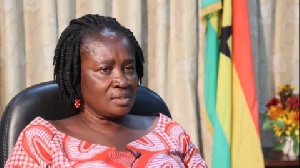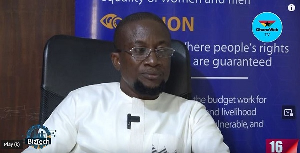Over 470,000 children are out of school due to learning difficulties and challenges that are not addressed by the current education system, according to the Ghana Education Service (GES), Special Education Division. The GES indicated that the children dropped out because they couldn’t find schools suitable to meet their disability needs.
This situation, which has also led to the segregation of the education system into regular and special schools, is about to see a new approach, with the introduction of inclusive education at the basic level. Inclusive education is about how we develop and design our schools, classrooms, programmes and activities, so that all students learn and participate together.
Since this practice is new to the Ghanaian society, the GES has adopted an integrated approach, by which children with challenges are welcomed into regular classes that have two teachers taking care of the needs of the students, the Director in charge of Special Education, Stephen Kwame Adu, has said.
Ghana’s preparation towards inclusive education was announced at a technical discussion held in Accra recently by the Ghana Education Service (GES), United Nations Children’s Education Fund (UNCEF) and other development partners to develop policy, curriculum textbooks and other teaching and learning material for schools.
The Special Education Director, in an interview with the media, said the constitution mandates free and compulsory education for all children of school-going age. He indicated that children with or without challenges must be given equal opportunity in well-adopted teachable environments, adding, “We are trying to move away from education being special for a particular group of children.”
Special school, by definition, is about particular children in segregated schools of establishment – these are children with hearing impairments, and sight problems among others, he added. He further explained that looking at the system now, we always talk about those with disabilities, but there are a large number of children in the classroom who are normal but have disabilities.
We can condemn these children as not being good students, but it is not their fault for not being clever, but they rather have a need that must be addressed. He stated that the programme is geared at bringing on board as many of these children as possible in a normal education system. The GES, in fulfillment of this aspect of the constitution, has started capacity building for teachers, in the colleges of education and universities.
Also, the GES will be working with the Ministry of Health and Ministry of Gender, Children and Social Protection to screen the children at an early stage to avert some challenges that can be corrected medically. “Some of these difficulties, if tackled early enough, would not develop into major problems,” he asserted. The Chief Educationist of the UNICEF, Ghana Lucinda Ramos, said the UNICEF’s interest to see the full operation of inclusive education in the country was that the international organisation works on behalf of children with disability who are been excluded from society.
She explained that inclusive education is about accepting children in all categories of disability and need. The UNICEF involvement in the inclusive education policy framework was to give the GES technical backing in the draft process, expanding, clarification, structure construction and professional development among others.
Regional News of Thursday, 14 August 2014
Source: The Chronicle

















